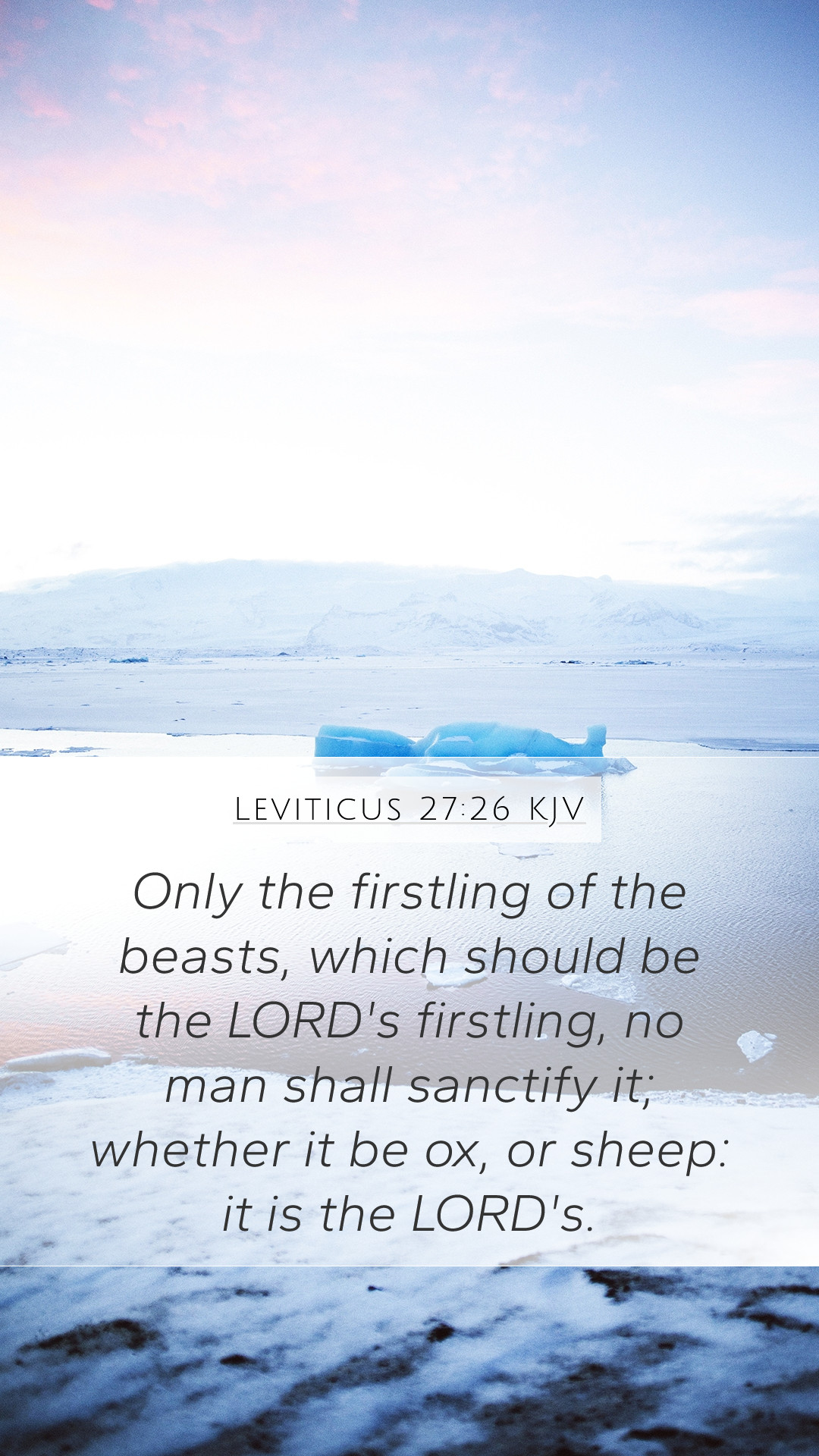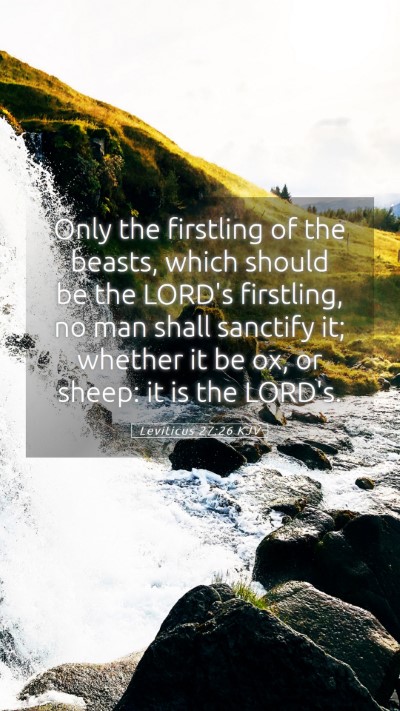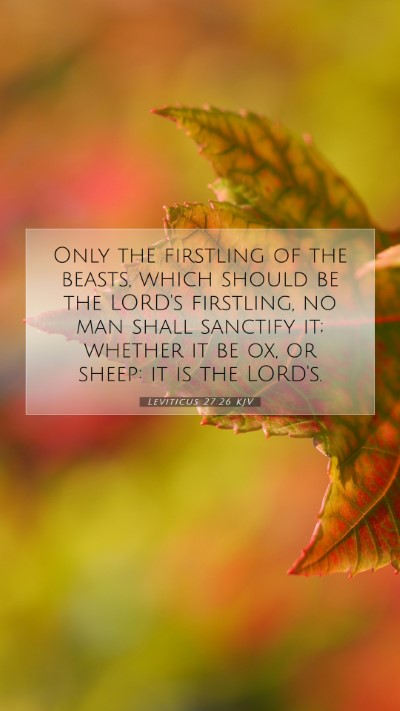Understanding Leviticus 27:26
Bible Verse: Leviticus 27:26 - "Only the firstborn of the animals, which should be the Lord's firstborn, no man shall dedicate; whether it is an ox or sheep, it is the Lord's."
Overview of the Verse
This verse discusses the special status of the firstborn of animals in the context of offerings to God. It highlights the significance placed on this particular category of offerings and their relationship to the Lord.
Commentary Insights
Matthew Henry's Commentary
Matthew Henry explains that the firstborn of the animals is of special importance as they belong to the Lord. He emphasizes that the dedication of the firstborn was a symbolic act of gratitude toward God for His blessings and provisions. The theme of God claiming the firstborn has its roots in the Exodus narrative where God spared the Israelite firstborns during the Passover.
Albert Barnes' Commentary
Albert Barnes interprets this verse by stating that the firstborn should not be dedicated, as it already belongs to God by right of creation and redemption. This serves as a reminder of God's sovereignty over all life and His rights to what is first and best. Barnes also discusses the importance of recognizing God's claim over the entirety of the Israelites' possessions.
Adam Clarke's Commentary
Adam Clarke highlights that Leviticus 27:26 addresses the larger principle that nothing can be presented to God except that which first belongs to Him. The firstborn represents the best and the commitment of the people to offer their best back to God. Clarke also connects this to the broader theme throughout Scripture where the first and best are designated for God’s service.
Interpretation and Application
The interpretation of this scripture extends beyond the immediate context of animal offerings to a broader theological principle regarding the first fruits of our lives—time, talents, and treasures. It teaches believers about prioritizing their relationship with God.
Key Themes
- Divine Ownership: The idea that all firstborns belong to God serves as a powerful reminder of divine ownership over creation.
- Symbolism of the Firstborn: The firstborn signifies the best that we have to offer, aligning with the biblical principle of giving our best to God.
- Gratitude and Dedication: This verse reflects an attitude of gratitude where offerings are not merely obligatory but an act of praise and commitment to God.
Related Bible Cross References
- Exodus 13:2 - "Consecrate to me all the firstborn; whatever opens the womb among the people of Israel, both of man and of beast, is mine."
- Numbers 18:15 - "Every firstborn of man among your sons you shall redeem, and the firstborn of unclean animals you shall redeem."
- Luke 2:23 - "As it is written in the Law of the Lord, ‘Every male who first opens the womb shall be called holy to the Lord.’"
Conclusion
Leviticus 27:26 calls us to reflect on the significance of our offerings to God, understanding that He desires the first and best from us. It serves as a crucial element of Bible verse meanings and interpretations, urging believers to dedicate their lives to God wholeheartedly, reflecting both gratitude and acknowledgment of His ownership over all.
Further Study
For those keen on delving deeper, consider exploring Bible study resources or engaging in online Bible study groups. Understanding scripture is enriched by utilizing a variety of Bible study tools and guides aimed at unpacking the richness of Biblical texts.


